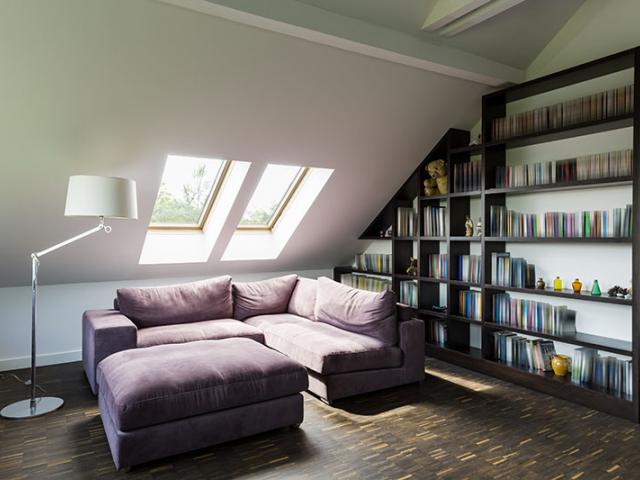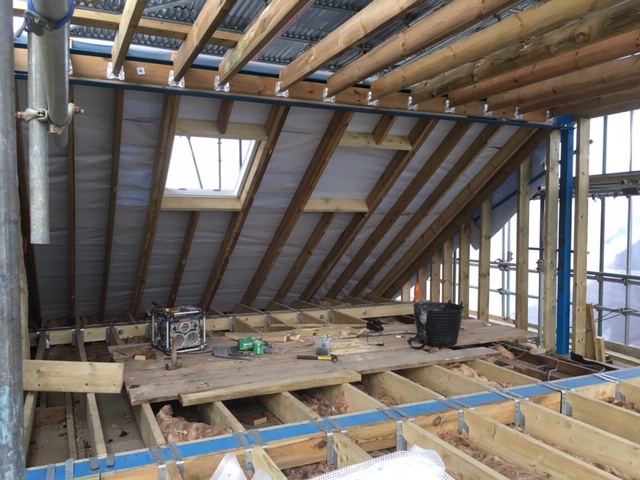The Best Windows for Your Loft Conversion
A loft conversion is one of the most effective ways to increase the living space and value of your home. From an additional bedroom to a home office, the possibilities for your new space are nearly endless. However, one of the most important decisions you’ll make during the process is choosing the right windows. Not only do they need to fit the aesthetic of your new room, but they also play a crucial role in ventilation, natural light, energy efficiency, and even local planning regulations. Here’s a comprehensive guide to help you choose the best windows for your loft conversion.
1. Understand the Purpose of Your Loft Conversion
Before you dive into the specifics of window types, start by considering how you’ll use your loft. This will influence the type of windows you need in terms of light, insulation, and privacy.
- Bedroom: If your loft conversion is going to be a bedroom, maximizing natural light is essential, but privacy might be equally important. In this case, a combination of roof windows and dormer windows might be ideal.
- Office: A home office in the loft can benefit from bright, natural light for productivity. Roof windows, especially those facing south or southwest, can flood the space with daylight, creating an inspiring environment.
- Playroom: A loft playroom requires a balance of good ventilation and light to create a comfortable space. Safety features like restricted openings will also be key if children are the primary users.
Understanding the function of your loft conversion will help narrow down your window choices and make decisions based on practical needs.
2. Know the Types of Loft Conversion Windows
When choosing windows for your loft conversion, it’s important to familiarize yourself with the different types available. The two primary types are roof windows and dormer windows. If you are looking for some tips and ideas about loft conversions, please visit https://loftconversion.london/ to learn more.
Roof Windows
Roof windows are installed directly into the slope of the roof, providing a sleek and modern aesthetic. These windows are often referred to as Velux windows, after the well-known manufacturer.
- Benefits: Roof windows offer maximum natural light as they are positioned at an angle and face the sky. They are also excellent for ventilation, especially when multiple windows are installed to allow for airflow.
- Drawbacks: Privacy can be an issue, especially in urban areas where neighboring houses are close by. You may need to add blinds or frosted glazing for privacy.
Roof windows come in a variety of styles, including top-hung, centre-pivot, and electric models. Each style offers different benefits depending on your loft’s layout and your personal preferences.
Dormer Windows
Dormer windows are vertical windows that project from a sloping roof. They create more headroom and usable floor space within the loft and are ideal for conversions where space is at a premium.
- Benefits: Dormer windows offer a more traditional appearance and add architectural interest to the exterior of your home. They also provide additional headroom, making the loft feel more spacious. Since they face outward, dormer windows offer better privacy compared to roof windows.
- Drawbacks: Dormer windows tend to be more expensive to install as they require more structural work. They also allow slightly less light compared to roof windows because of their vertical orientation.
You can mix and match these types based on your preferences, loft design, and budget.
3. Consider Energy Efficiency
Windows play a significant role in the energy efficiency of your loft conversion. With lofts being at the top of the house, they can be more susceptible to temperature changes, so energy-efficient windows are crucial to maintain a comfortable environment all year round.
Double vs. Triple Glazing
Both double and triple glazing options can improve insulation in your loft conversion.
- Double Glazing: Double glazing consists of two panes of glass with an insulating layer of air or gas between them. This helps keep heat in during winter and out during summer.
- Triple Glazing: Triple glazing adds a third pane of glass, offering even better insulation and noise reduction. While it can be more expensive, it’s ideal if you live in a noisy area or want to maximize energy efficiency.
For most loft conversions, double glazing will suffice. However, in colder climates or noisy urban areas, you may want to invest in triple glazing to further enhance comfort.
Low-E Glass
Low-E (low-emissivity) glass is designed to minimize the amount of infrared and ultraviolet light that passes through the glass without compromising the amount of visible light. This type of glass can help reduce energy bills by reflecting heat back into the room during the colder months, while keeping heat out during the summer.
Opting for energy-efficient windows will not only make your loft conversion more comfortable but also reduce your heating and cooling costs in the long run.
4. Ensure Adequate Ventilation
Proper ventilation is key in any loft conversion, especially as the warm air from your home naturally rises into the attic. Without sufficient airflow, your loft may become too hot in summer and prone to dampness or condensation in winter.
- Manual Ventilation: Installing windows that open can help create a natural flow of air throughout the space. Roof windows are particularly effective in this regard as they can be opened at different angles to allow air to circulate. Centre-pivot windows, which can be opened from the middle, are particularly good for ventilation.
- Trickle Vents: Many modern windows come with built-in trickle vents. These small openings allow a constant, low level of ventilation, even when the window is closed. They’re ideal for keeping the air fresh without causing a draft.
If your loft is large, consider installing multiple windows for cross-ventilation, ensuring that stale air is replaced by fresh air throughout the day.
5. Check Local Planning Permissions and Building Regulations
In some cases, local authorities may have regulations regarding the type of windows you can install in a loft conversion, particularly if your home is in a conservation area or a listed building.
- Planning Permissions: Some types of loft conversions, particularly those involving dormer windows or alterations to the roofline, may require planning permission. It’s important to check with your local council before starting any work.
- Building Regulations: All loft conversions in the UK must meet specific building regulations to ensure the safety and structural integrity of the space. These regulations may include rules about fire safety, insulation, and window placement, particularly if the loft is being converted into a bedroom or living space.
Working with an experienced architect or builder will help you navigate these regulations and ensure that your project complies with local laws.

6. Factor in Aesthetics and Design
Windows are not just functional; they also play a huge role in the look and feel of your loft conversion. Consider the style and appearance of your home, as well as how the windows will fit in with the overall design.
- Exterior Style: If you have a traditional home, dormer windows might blend more seamlessly with the exterior, whereas roof windows can offer a sleek, modern look.
- Interior Design: The type of window you choose will also impact the interior design of your loft. For example, roof windows can create a minimalist, airy atmosphere, while dormer windows add character and charm to the room.
Choosing windows that complement the architectural style of your home will enhance both the exterior and interior appeal of your loft conversion.
7. Budget Considerations
Finally, your budget will play a significant role in determining which windows are right for your loft conversion. Dormer windows are typically more expensive than roof windows due to the structural work involved, but they may offer additional benefits in terms of space and aesthetics.
- Installation Costs: Factor in both the cost of the windows themselves and the installation costs. Dormer windows may require more structural changes, which can add to the overall expense.
- Long-Term Savings: Investing in high-quality, energy-efficient windows may cost more upfront but can save you money on heating and cooling bills over time.
Make sure to obtain quotes from multiple suppliers and contractors to ensure you’re getting the best value for your money.
Conclusion
Choosing the best windows for your loft conversion is a critical decision that will impact the comfort, appearance, and functionality of your new space. By understanding the different types of windows, focusing on energy efficiency, and considering both ventilation and design, you can make an informed choice that meets your needs and enhances your home. Don’t forget to check local planning permissions and building regulations to ensure your project runs smoothly. With the right windows, your loft conversion can be a bright, airy, and stylish addition to your home.

